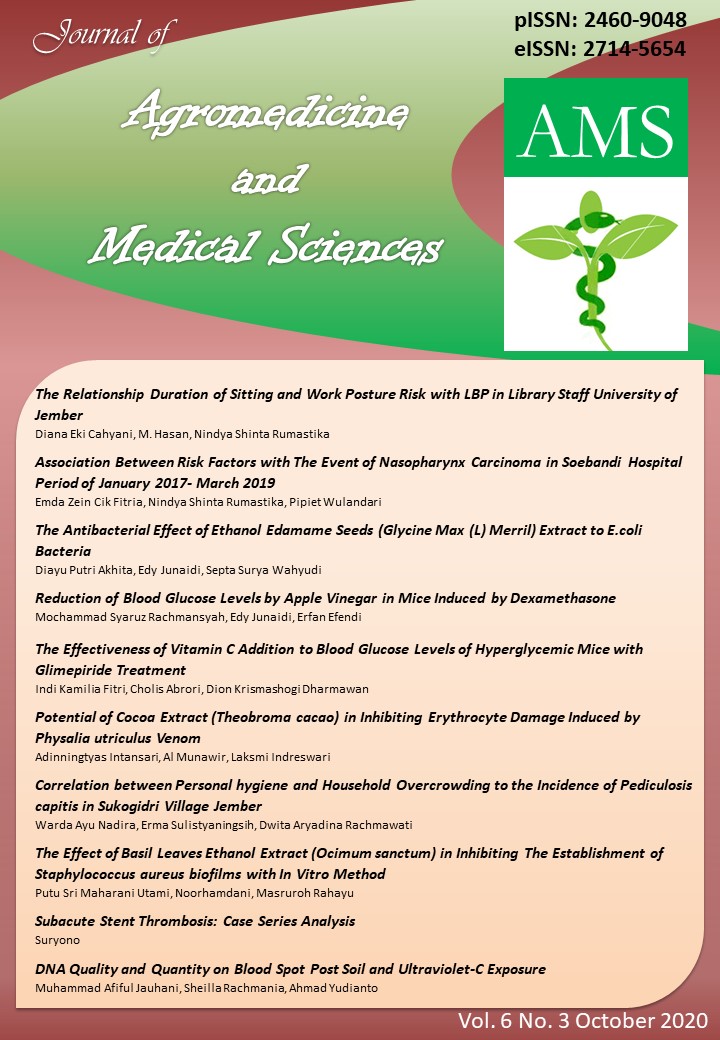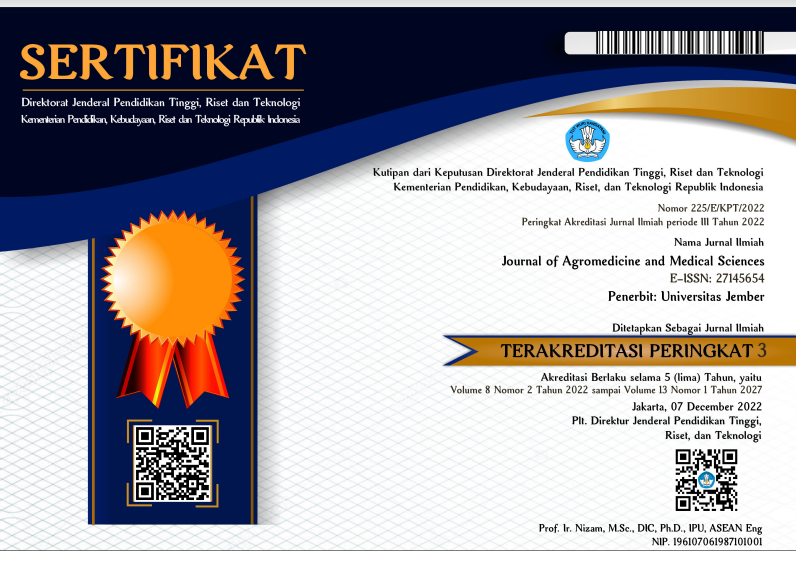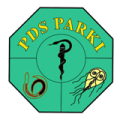Reduction of Blood Glucose Levels by Apple Vinegar in Mice Induced by Dexamethasone
DOI:
https://doi.org/10.19184/ams.v6i3.11481Abstract
The number of people with diabetes mellitus (DM) in the world is 425 million in 2017. The use of antidiabetic drugs usually lasts long enough with high side effects. Therefore, an alternative treatment with lower side effects and the efficacy same with synthetic drugs is needed. One of alternative treatment is apple fruit which can be processed into apple vinegar. Several studies have found the hypoglycemic effect of apple cider vinegar in various dosages. The author wants to know the reduction of blood glucose levels and the effective dose of apple vinegar in reducing blood glucose levels in mice induced by dexamethasone. The type of research is true experimental laboratories with pre and post-test with control group design. This study used 28 mice. Mice were given dexamethasone for 10 days to induce hyperglycemia. After experiencing hyperglycemia, mice were divided into 7 groups consisting of negative control group, positive control group, and treatment group of 0.0625 mL apple cider vinegar, 0.125 mL, 0.25 mL, 0.5 mL, and 1 mL. The research data obtained ΔGDP in each group. Furthermore, the reduction in glucose levels is calculated. Effective dose calculation by regression analysis using percentage reduction of blood glucose levels curve. The final results showed the maximum effective dose of apple vinegar in reducing blood glucose levels is 0.341 mL with percentage reduction of blood glucose levels is 18.6%.






















